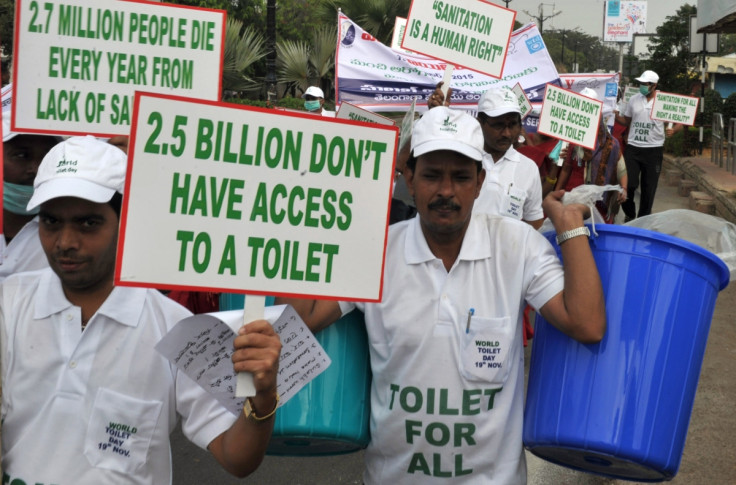World Toilet Day: Global economy loses $260bn every year because of poor sanitation

The world economy loses $260bn (£170bn) every year because of inadequate water supply and sanitation, according to a report published by Water Aid. The cost of hospital resources used by people suffering from preventable diseases linked to dirty water, as well as the time these people spend out of work, is said to contribute to stalling a country's economic development.
Published by Water Aid on World Toilet Day on 19 November, the report – It's No Joke: The State of the World's Toilets 2015 – outlined the fact that more than 650m people did not have access to clean water, with more than 2.3bn not having access to a safe and private toilet. It noted that diarrhoea, malaria and pneumonia were the most common killers of young children around the world, with 58% of those deaths having the potential to be prevented by clean water and sanititation.
"Not having a proper toilet, whether you defecate in the open or use a bucket or rudimentary pit latrine which leaks its contents, means you have no way to prevent your faeces from contaminating your environment," the report said. "This is a one-way street to illness."
Research revealed that 1g of faeces carried up to 1m bacteria and 10m viruses, all of which could contaminate your hands, food and water, and spread diseases. The report said: "This transmission has a far wider impact than many people realise."
The United Nations (UN) has estimated that sanitation was an excellent economic investment because it gained an average return of $5.50 (£3.60) for every $1 (£0.65) invested. The UN's Sanitation Drive noted that a number of business opportunities existed within sanitation issues, with the creation of jobs through building toilets and related facilities being the most obvious.
A representative for the campaign said: "The safe reuse of urine and composted faeces as a fertiliser holds potential for multiple economic benefits in a local economy, while reducing unsafe reuse practices that have adverse health consequences."
The UN recommended using human waste for biogas to produce cooking fuel, which could create jobs and provide a "much-needed service". Experts also noted that poor sanitation could contaminate drinking water, leading to unnecessary investment in more expensive sources.
Research from the UN said: "Agriculture, fish farming, energy production and large-scale industrial processes all suffer economically from the increased treatment and other costs due to water pollution by faecal contamination."
© Copyright IBTimes 2025. All rights reserved.






















